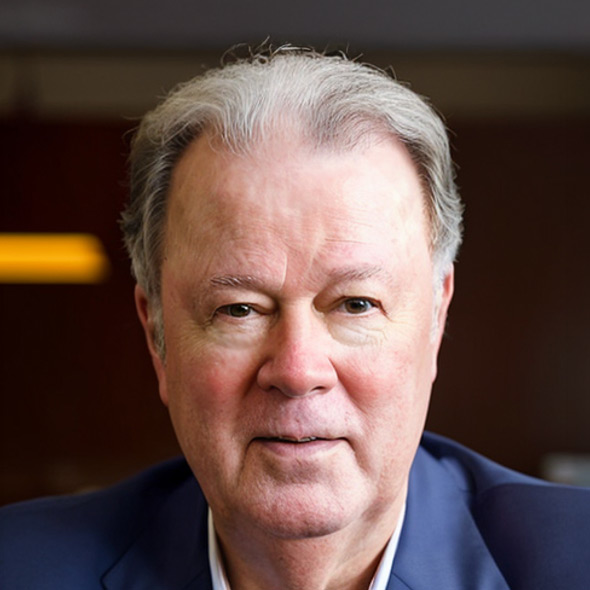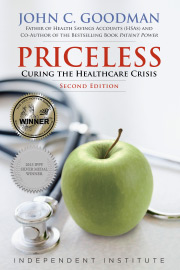Here’s the most underreported story of the summer. When the Supreme Court ruled on the Affordable Care Act (ObamaCare) it inadvertently liberated millions of people who were going to be forced into Medicaid. Now they will have the opportunity to have private health insurance instead. What difference does that make? It could be the difference between life and death.
A Congressional Budget Office (CBO) report this week says there are 3 million such people. The actual number could be several times that size. But first things first.
Imagine that you are the head of a family of three, struggling to get by on an income, say, of $25,000 a year. You’ve signed up for your employer’s health plan because you want your family to get good health care when they need it. But that takes a big bite out of your paycheck—$250 a month.
When you first heard about the president’s health plan, you heard him say that if you like the plan you’re in you can keep it. That was good news. You also believed the whole point of the reform was to help families like yours get health insurance if for some reason you had to seek insurance on your own.
Now get ready for some surprises. The first will be an announcement that in another year or so your employer’s health plan will no longer be available to you. The reason: plain economics. People at your income level will qualify for as good or better health insurance in a new health insurance exchange. And almost all the premium will be paid for by the federal government. Most people like you would rather have higher wages than a health plan that duplicates what you can get almost for free, your employer will reason. So in order to compete for labor, your company will have to give prospective employees the compensation package they most want. And your employer will be right.
Then there will be a second surprise. Under the new rules, if you are eligible for Medicaid, you can’t get private insurance in the exchange. Further the health reform law is designed to force the states to raise the income level for Medicaid. If your state complies, someone with your income will be eligible for Medicaid and you won’t be allowed in the exchange!
Now if you were a resident alien, the rules are different. Since they don’t generally qualify for Medicaid, immigrant families at your income level can get subsidized private insurance in the exchange. But alas, you’re a citizen. So this option isn’t open to you.
Now let’s say you are under the impression that Medicaid is second rate insurance and you remember that your employer promised to pay more in wages once your health benefit is gone. What about using the higher wages from your employer to buy private insurance outside the exchange?
Now get ready for the third surprise. There isn’t going to be any market for private insurance outside the exchange—at least not for you. The insurance companies are going way. The brokers are going away. The market is going way.
Now for the final surprise. The only option open to you under the Affordable Care Act is Medicaid! Why should you care? Because your initial impression is correct. Medicaid is second rate insurance.
In most places Medicaid patients have a terrible time finding doctors who will see them and facilities that will admit them. That’s why so many of them turn to community health centers and the emergency rooms of safety net hospitals for basic medical care. Medicaid enrollees turn to emergency rooms for their care twice as often as the privately insured and even the uninsured. In fact, if you’re trying to get a primary care appointment, it appears your chances are better if you say you are uninsured.
Study after study has found that patients on Medicaid have worse outcomes than patients with private insurance. With respect to cancer care, outcomes are much better if you have private insurance, but there does not seem to be much difference between Medicaid and being uninsured. Health blogger Avik Roy summarizes other studies that find that Medicaid patients do no better and sometimes worse than the uninsured. Additional evidence is supplied by Scott Gottlieb.
But now a rescuer has appeared on the scene. The US Supreme Court has ruled that the federal government can’t force the states to expand their Medicaid programs. If your state doesn’t, then you can enter the exchange and get private health insurance after all. Right? Maybe.
Here is where is gets little bit tricky, owing to the bizarre structure of ObamaCare. The new health law is trying to get the states to expand Medicaid eligibility to 138% of the federal poverty level ($15,415 for an individual or $26,344 for a family of three). But let’s suppose that, thanks to the Supreme Court, a state doesn’t do anything. It turns out that only people who are between 100% and 138% of poverty can then go into the exchange and get private insurance.
However, if you are at, say, 90% of the federal poverty level and not eligible for Medicaid, then you will not be allowed into the exchange. You will be in a sort of “no-man’s-land” donut hole. And the only way out will be for you to somehow earn more income. Or, lie about it. This may be one of the very few instances where people will find it their self-interest to tell the IRS their income is higher than it really is!
According to the CBO about two-thirds of the states will not expand eligibility above 100% of the federal poverty level. That’s why 3 million citizens will be liberated and will get private insurance instead. Moreover, the subsides in the exchange are incredibly generous. The most the family has to pay is 2% of their income. In the example above, you would pay $500 for an insurance plan that could be worth as much as $15,000!
Further, the private plans in the exchange will pay providers about 50% higher fees that the rock bottom payments they would have gotten from Medicaid. This will be a huge relief for safety net facilities that are scraping by on inadequate resources as it is. And it’s a reason why the CBO may have underestimated how many states will find this option very attractive.
ObamaCare is still a Rube Goldberg contraption that desperately needs repealing and replacing. But in the interim, the Supreme Court has done a lot of families a big favor.











